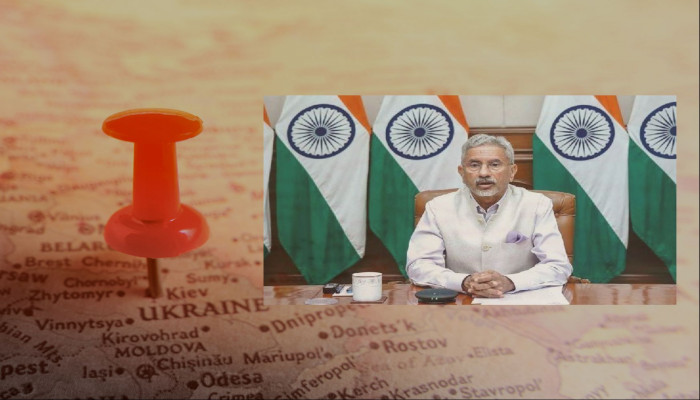EAM Jaishankar slams Western criticism of India's purchase of Russian oil
- In Reports
- 10:06 PM, Nov 27, 2024
- Myind Staff
In a pointed rebuttal to Western criticism of India's continued purchase of Russian oil amidst the Ukraine conflict, External Affairs Minister S. Jaishankar emphasised that every region of the world has its own priorities and interests. In an interview with the Italian newspaper Corriere della Sera, Jaishankar questioned Europe's "selective approach" toward its dealings with Russia.
He argued that if principles truly dictated Europe's stance, it would have completely severed its economic ties with Russia, rather than maintaining selective engagements. Jaishankar highlighted what he termed Europe's "unreasonable expectations" from other parts of the world, underscoring the need for a more equitable understanding of global interests.
"This part of the world has to understand that every part of the world has its interests. The priorities of Europe will naturally differ from the ones of countries in Asia or Africa or Latin America. If everything is a matter of such a deep principle, then Europe itself should have cut off all its business with Russia, but it doesn't do that. It's been very selective and paced its disengagement very, very carefully. So to say this region (Europe) will worry about its people, and others should not worry about what the impact will be on them, is not reasonable," Jaishankar said.
Jaishankar further asked why should India "pay higher prices just to make you (Europe) happy."
"And please understand one thing. Europe was importing energy from Russia. Europe then started diverting to other producers and that put pressure on the market. So what are we supposed to do? Pay higher prices just to make you happy? Life is about respecting other people's interests, not about having everything your way," he further said.
When questioned about India's stance on resolving the Russia-Ukraine conflict, Jaishankar reiterated New Delhi's consistent advocacy for ending the war through diplomacy and dialogue.
"We think that there should be diplomacy to find a way of ending the conflict. And that's what we are trying to do," he said.
Jaishankar underscored India's efforts to promote a resolution to the conflict, emphasising that a lasting solution cannot be achieved on the battlefield. He stressed the importance of direct negotiations between Moscow and Kyiv, noting that without both sides coming to the table, it is impossible to determine their respective positions and aspirations for peace.
"So you have to talk to Moscow, and you have to talk to Kyiv. And that's what we are trying to do. Look, it's now nearly three years. You're not going to get a solution from the battlefield, right? We have to negotiate. At some stage, people will come to the table. The sooner they do it, the better, because the rest of the world is affected. It's not just that Europe is taking the brunt of this conflict. Everybody else's life is also impacted by what is happening. So do understand there is a big feeling across very large parts of the world. More effort needs to be done to actually get the participants back to the negotiation," he said.
"We will know what Russia wants or Ukraine wants only when they get down to the negotiation. We have today two major conflicts taking place simultaneously. This is putting the entire international system under great stress. And we cannot be just spectators and say, well, that's the way it is. It may or may not work. We will not know until we try. But we do believe that on both these conflicts, in Ukraine and in the Middle East, countries need to take initiatives, make efforts, however difficult it looks, to try and find some common ground, something better than what we have today," the Foreign Minister added.
Addressing questions regarding the International Criminal Court's arrest warrants for Russian President Vladimir Putin and Israeli Prime Minister Benjamin Netanyahu, Jaishankar clarified that India is not a signatory to the ICC. In a pointed remark, he stated, "When you're not members of a body, that already tells you what your views are about that body," signalling India's stance on the matter.







Comments